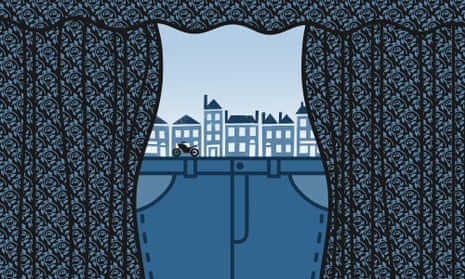When I was 12, my 19-year-old cousin started to sexually abuse me, showing up at my house most afternoons. I worshipped him, so I didn’t know how to say no. I do not remember how or when it ended, but I know I still feel the dread I felt when his motorcycle stopped in front of our house.
I met my husband when I was 17. I was terrified of sex, so we waited almost 10 years to make love. We had a child, who is now a young teen. Last week, 30 years after we met, I discovered that my husband had been cheating on me for a year. At this point, we hadn’t made love for a year. I enjoy sex to a degree, but never feel the urge, even though I masturbate.
He tells me he needs to feel desired, and this other woman gives him what I never could. He says he’s in love. I’m devastated, and I wonder if the trauma I experienced as a child is behind my incapacity to satisfy his needs, or if there were too many unsaid things in our relationship for it to be healthy? Do you think therapy would help?
I’m so sorry to hear about your childhood sexual abuse. What your cousin did was criminal and entirely not your fault. You could still report him if you wanted to, if he is alive, but that is your decision alone to make. I do want you to recognise how you have survived this abuse, which happened at such a young age.
Your trauma – I’m glad you recognise it as such – is also categorically not to blame for your husband’s infidelity, which is entirely his to own. Your letter was heartbreaking, because it’s all about other people’s wants. You mention your supposed “incapacity to satisfy his needs”. But I would ask you, what are your needs – and has he, or anyone, met them?
I consulted psychoanalytic psychotherapist Dr Sally Beeken (bpc.org.uk). We talked about how you must have so many conflicting feelings towards your cousin, and any feeling you have is OK. Abuse survivors often report myriad emotions – guilt, shame, anger, even loss – especially if the abuser was someone they loved. There’s a lot of information about this on the National Association for People Abused in Childhood website (napac.org.uk), as well as details of local support groups. There is also a helpline: 0808 801 0331; and email support: support@napac.org.uk.
Although it seems your husband’s infidelity has prompted you to write, Beeken asked if there was also something about your child being roughly the same age you were when the abuse started that has triggered feelings in you (this is common).
“I also wondered about your parents,” she said. “Where were they in all this? There’s so much unsaid in your letter. What would you like to say?”
I would like you to concentrate on this question. What would you like to say? To your cousin, to your childhood self, to your husband, to yourself now? I wonder if anyone has asked you what you think? Obviously, you and your husband have a lot to work out, but what do you want to happen next?
It’s very common for abuse survivors to have issues with trust – and trust is essential for intimacy. So it’s no surprise to hear you don’t have the urge for sex but do masturbate. Being able to bring yourself pleasure is a good sign.
To answer your last question, yes, I really think therapy would help you to unpack what happened. You need someone who understands childhood sexual abuse trauma. While the Napac support is great – and specialised – I do urge you, if you can, to invest in some one-to-one, in-depth, psychological support. NHS waiting lists are long, and they often offer only CBT, which is great, but I don’t think that’s right for you at the moment (Beeken agreed).
To find this, the BPC website, above, is one place to start, but at psychotherapy.org.uk you can search for therapists who deal specifically with sexual abuse. In time you may want to consider couples therapy with your husband. But for now I think you need – and deserve – some space, time and focus just for yourself.
Every week Annalisa Barbieri addresses a family-related problem sent in by a reader. If you would like advice from Annalisa on a family matter, please send your problem to ask.annalisa@theguardian.com. Annalisa regrets she cannot enter into personal correspondence. Submissions are subject to our terms and conditions: see gu.com/letters-terms.
Comments on this piece are premoderated to ensure the discussion remains on the topics raised by the article. Please be aware that there may be a short delay in comments appearing on the site.
